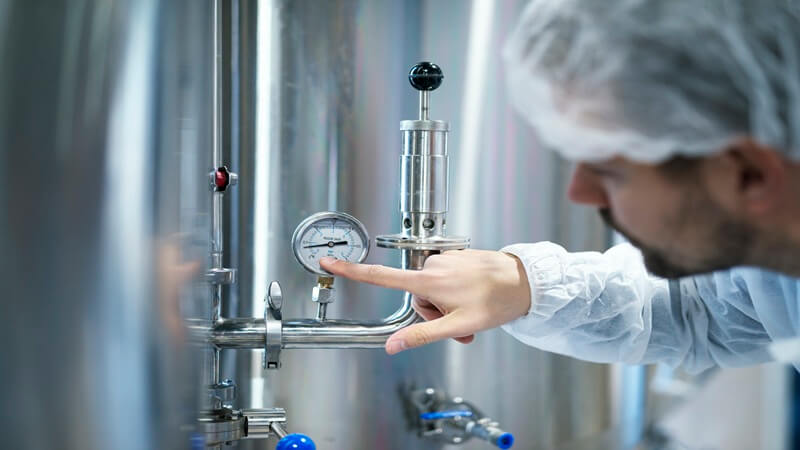Key Takeaways
- Ion exchange and deionization technologies are crucial for producing high-purity water used in many critical industries.
- These methods help improve environmental sustainability by minimizing pollutants and reducing reliance on chemical additives.
- Advanced systems and ongoing innovations are broadening the scope and effectiveness of water treatment technologies worldwide.
- Scalable and adaptable, these solutions play a central role in addressing global water scarcity and quality challenges.
Table of Contents
- Understanding Ion Exchange and Deionization
- Applications Across Industries
- Environmental Benefits
- Advancements in Water Treatment Technologies
- Addressing Global Water Challenges
- Conclusion
Understanding Ion Exchange and Deionization
Enhancing access to clean, contaminant-free water is at the heart of sustainable development and public health. Ion exchange and deionization are two leading methods for removing harmful impurities and unwanted minerals from water sources. Through sophisticated media and resin beds, these processes exchange undesirable ions present in water with more benign ones, thereby enhancing water quality and stability. Specialized deionizer systems for high-purity water in Maryland exemplify the practical application of these technologies, ensuring reliable solutions for communities and industries alike.
In the ion exchange process, resins facilitate the swap of ions such as calcium and magnesium—which cause water hardness—for sodium or potassium ions. This exchange results in softened water, which reduces scale buildup and enhances cleaning efficiency. Deionization builds on ion exchange technology, targeting and removing virtually all dissolved, ionized salts and minerals, thereby achieving a water quality that is essential for high-precision processes in laboratories and advanced manufacturing.
Applications Across Industries
Ion exchange and deionization have become foundational in sectors where ultrapure water is a prerequisite. In semiconductor manufacturing, deionized water is the gold standard for rinsing delicate silicon wafers, as even minor ionic residues can compromise the integrity and functionality of microchips. The pharmaceutical industry similarly depends on high-purity water to maintain stringent standards for drug safety and performance—any residual ions can interfere with chemical reactions and degrade product efficacy.
Power plants depend on ion exchange resins to purify feedwater and minimize corrosion in boilers and turbines, extending equipment lifespan and reducing downtime. Food and beverage companies rely on these methods to guarantee the taste, safety, and stability of their products, further illustrating the critical role these solutions play in safeguarding public health and trust.
Environmental Benefits
Modern water treatment technologies that leverage ion exchange and deionization not only ensure safety and compliance but also yield significant environmental benefits. By drastically reducing the quantity of chemical additives required, these processes prevent the buildup of hazardous byproducts in wastewater. The minimized output translates to simpler, less costly waste management and a smaller overall environmental footprint.
Organizations can also achieve higher efficiency and consistency in water purification, enabling them to reach sustainability and energy reduction targets. In many industries, utilizing advanced water treatment can help meet or exceed the standards set by the U.S. Environmental Protection Agency (EPA), thereby further supporting corporate social responsibility and environmental stewardship objectives.
Advancements in Water Treatment Technologies
Cutting-edge innovations are transforming the deployment of ion exchange and deionization in real-world scenarios. One breakthrough, flow-electrode capacitive deionization, enables continuous brine concentration with low energy consumption—an appealing solution for industries facing costly salt recovery and brine management needs. Coupled with membrane technologies and advanced oxidation methods, these new systems achieve even higher water purity with robust contaminant removal.
The integration of digital monitoring and automation into water treatment operations ensures consistent and cost-effective management, while predictive analytics help prevent equipment failures and optimize performance. Research highlights that ongoing improvements in resin chemistry and system design are making water treatment more sustainable and accessible than ever before.
Addressing Global Water Challenges
The escalating global water crisis—characterized by increasing scarcity and pollution—highlights the critical need for adaptable, scalable water treatment solutions. Ion exchange and deionization lead the way, providing clean water in areas where traditional filtration falls short of purity demands. Their versatility allows them to enhance existing infrastructure, boosting the resilience of municipal water systems and enabling quick deployment during emergencies or natural disasters.
From desalination plants in dry regions to mobile water purification units for humanitarian aid, the scalability of these technologies makes them suitable for both large cities and remote, underserved communities. Ensuring safe access to drinking water supports long-term economic growth, public health, and the achievement of global sustainability targets.
Conclusion
Ion exchange and deionization are at the core of modern water treatment strategies, unlocking high-purity solutions for critical industries while supporting environmental and sustainability targets. Their effectiveness and adaptability make them a key part of the answer to global water scarcity and quality challenges. Continued innovation and adoption of these systems will be crucial for ensuring clean, safe water for generations to come and enhancing the world’s resilience in the face of evolving environmental challenges.
For more info visit Pocketmemories
